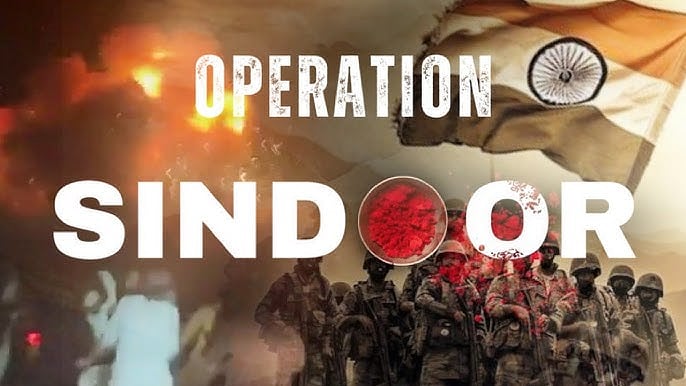Listen to the article
India Launches Diplomatic Offensive to Counter Pakistan’s False Narratives
India is preparing to deploy four delegations of Members of Parliament to various countries beginning May 2023, marking an intensification of its diplomatic efforts to counter Pakistan’s misleading international narratives. The initiative aims to present India’s perspective on critical regional issues, including terrorism and stability in South Asia, directly to international audiences.
The delegations, composed of senior and experienced parliamentarians, will engage with lawmakers, government officials, and opinion leaders across target nations. By presenting authentic data and evidence of Pakistan’s support for terrorism and propaganda campaigns, India hopes to effectively neutralize misinformation at its source. This direct diplomatic approach is expected to bolster India’s credibility and ensure that allied nations receive accurate information about security dynamics in the region.
The diplomatic initiative carries significant potential impacts. Primarily, it will highlight India’s commitment to peace, regional stability, and counter-terrorism efforts. Additionally, the delegations will work to expose Pakistan’s attempts to manipulate global opinion through fabricated narratives while simultaneously reinforcing bilateral ties by demonstrating India’s transparency in addressing regional challenges.
To support these diplomatic efforts, India has strengthened its fact-checking infrastructure. Organizations like the Press Information Bureau’s Fact Check unit play a crucial role in identifying and debunking misinformation while disseminating accurate information to the public. These efforts are enhanced through collaborations with independent fact-checking entities and direct engagement with social media platforms, which has already led to the removal of hundreds of fake accounts operated by Pakistan.
International partnerships form another pillar of India’s counter-disinformation strategy. Indian diplomatic missions worldwide are actively engaging with host governments, providing evidence of Pakistan’s disinformation campaigns and advocating for balanced perspectives on South Asian security issues. This approach includes collaboration with social media companies to curb the spread of false information globally.
On the domestic front, India is investing in media literacy programs that equip citizens to identify and counter fake news. These initiatives target diverse demographics, including students and rural populations, to foster a society resistant to propaganda. Media outlets are also encouraged to verify information before reporting, further reducing the spread of false narratives.
Intelligence reports reveal that Pakistan’s Inter-Services Public Relations (ISPR) operates approximately 20,000 fake social media accounts to disseminate misleading information. These accounts often impersonate various ethnic and religious identities to create discord within India and among its allies. During the Prophet Remarks controversy, for example, over 60,000 Twitter posts, many originating from Pakistan, amplified anti-India sentiments and calls for boycotts.
In the aftermath of Operation Sindoor, Pakistan’s state apparatus spread numerous fabricated claims to mislead both domestic and international audiences. These included false reports of attacks on Indian military installations and doctored visuals of Indian casualties. Pakistani state media channels aired footage falsely claiming Indian aircraft had been shot down, attempting to create the impression that Pakistan had effectively countered India’s actions, despite losing eight airbases and nine terror camps in the operation.
Pakistan’s military and government have utilized state-controlled media to project a narrative of victimhood. Lieutenant General Ahmed Sharif Chaudhry, Director-General of ISPR, conducted press briefings emphasizing alleged civilian casualties and damage to religious sites, portraying India’s actions as unprovoked aggression. Such narratives aim to generate international sympathy and divert attention from Pakistan’s support for terrorist groups.
State-run channels like PTV News and Radio Pakistan regularly feature government-aligned analysts who falsely claim Pakistan has inflicted significant losses on India. Pakistan has also attempted to internationalize the Kashmir issue in global forums like the United Nations, often presenting distorted facts and unverified claims to damage India’s international reputation.
Despite these efforts, sustaining disinformation has proven challenging for Pakistan. Independent fact-checking organizations and international media have debunked numerous false claims, exposing the extent of the misinformation campaign. While Pakistan has made concerted efforts to manage public perception following Operation Sindoor, these attempts have achieved limited success in the face of growing media literacy and vigilant fact-checking.
The ongoing information warfare underscores the importance of India’s multifaceted counter-strategy—combining robust fact-checking, international collaboration, public education, and strategic communication—in neutralizing Pakistan’s disinformation efforts and ensuring that accurate information prevails in the global discourse on South Asian security.
Fact Checker
Verify the accuracy of this article using The Disinformation Commission analysis and real-time sources.




8 Comments
India’s diplomatic offensive to counter Pakistan’s false narratives is a bold move. Exposing misinformation and presenting their perspective directly to the international community is an important step.
It’s good to see India taking proactive measures to present their perspective on critical regional issues like terrorism and stability. Staying ahead of false narratives is crucial in today’s media landscape.
This initiative highlights the challenges countries face in the modern information landscape. Sending parliamentary delegations to engage directly seems like a sensible strategy to combat false narratives.
Indeed. Presenting authentic data and evidence is crucial to counter misleading propaganda campaigns. Transparency and open communication can go a long way.
Curious to see how effective this parliamentary delegation approach will be in bolstering India’s credibility on regional security issues. Countering propaganda requires a multi-faceted strategy.
Agreed. Building international support and aligning allies is key to successfully neutralizing misinformation campaigns. This direct diplomatic engagement could pay dividends.
Interesting to see India taking a more proactive diplomatic approach to counter Pakistan’s propaganda efforts. It’s important for countries to get their side of the story out there, especially on sensitive regional security issues.
Agreed. Misinformation can spread quickly online, so direct engagement with international stakeholders is a smart move to ensure accurate information is being shared.